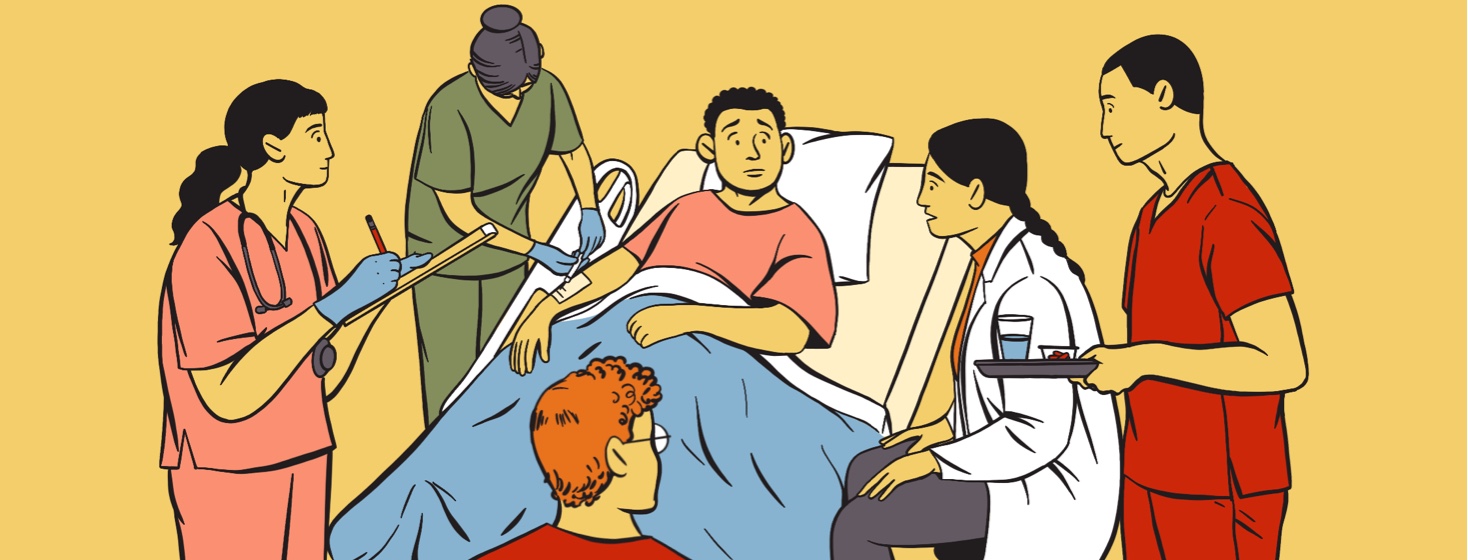What To Expect In The ER
I am a respiratory therapist with 25 years experience. A good part of my job involves working in the emergency room (ER) and taking care of people with heart failure. Along with doctors and nurses, my job is to help you feel better.
What can I expect in the emergency room?
That said, what should you expect if you ever need the services of an ER for your heart failure? Here is what you should know.
Many heart failure symptoms are a priority in the ER
Heart Failure flare-ups are often associated with chest pain and/or shortness of breath. Both of these symptoms will earn you a fast pass to the front of the line and you should immediately be taken to an ER room.
Expect to be treated with respect
Sometimes people wonder if they are sick enough to go to the emergency room. They wonder how they will be treated by healthcare workers. I will assure you now that you should expect be treated with respect and dignity. Your medical team should say things like, “You made a good decision coming in to be seen. Our goal now is to get you feeling better.”
I love my small town hospital, and I think we do a great job of providing good service in my ER. If you do not receive good service, most hospitals have a hotline you can contact.
You will meet your healthcare team
As soon as you are in your room and situated on an ER bed, you will meet a bunch of people, seemingly all at once. In a way this may seem overwhelming, but the goal here is to get you feeling better as fast as we can. Here are some of the people you will meet:
- Nurse. Most of us, I am sure, are familiar with what nurses do. Your nurse will introduce themself to you. Your nurse will then, most likely, start an IV. Sure, this is no fun, but it will make it so we don’t have to keep poking you with needles. It also makes it easier for the doctor/nurse to give you medicines if needed.
- Nursing assistant. Along with the nurse, this person will help get you situated in your room. They will help the nurse hook you up to the monitors, place leads on your chest, a probe on your finger, and a blood pressure cuff on your arm. All of these will stay on you during your stay in the ER. This is helpful in allowing us to monitor your vitals at all times. This person may also put some more leads on your chest to hook you up to an EKG machine. An EKG will probably be among the first tests done.
- Doctor. The ER doctor will come into your room and introduce themself. The doctor may ask you a few question to get an idea as to what is happening to you. The doctor will then review the EKG and order some more tests such as blood draws, x-ray, etc. This doctor will assess you, listen to your lungs, and will continue to monitor you for the duration of your stay. Our doctors are also very good at explaining what they think is happening to you and what the plan is for getting you feeling better.
- Respiratory therapist. This is what I do. I have access to various medicines and machines that can be used to help you feel better. In an earlier post, I explained about BiPAP. This is one of the machines that the doctor may order to get you feeling better.
You should leave feeling better
The doctor will rattle off a bunch of orders and this will set both the nurse and respiratory therapist (me) into action. Your nurse will gather up whatever medicines the doctor ordered, and I will do the same. An X-ray may be done, and labs will probably be drawn.
Once all the test results start coming back, the doctor will start gaining a picture of what he or she thinks is wrong with you and you will be given a proper diagnosis. This will help the doctor fine tune your treatment and decide what else needs to be done to help you.
From there, you should start feeling better. At this point the doctor may discharge you home or have you admitted to the hospital for further observation.
Don't be hesitant to visit the ER
We are here for you! We are trained and ready to assist you whenever you need us. That is what we are here for. I hope this post gives you a better idea of what we are all about. If you ever even think you don't feel quite right, please do not hesitate to visit your local ER.
Do you have a heart failure story? Click the button below to share with our community!

Join the conversation